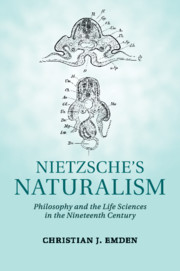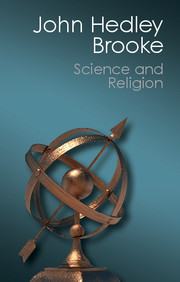Refine search
Actions for selected content:
10306 results in History of science: general interest
Acknowledgments
-
- Book:
- Constructing Race
- Published online:
- 05 August 2014
- Print publication:
- 21 July 2014, pp ix-xiv
-
- Chapter
- Export citation
Bibliography
-
- Book:
- Constructing Race
- Published online:
- 05 August 2014
- Print publication:
- 21 July 2014, pp 353-384
-
- Chapter
- Export citation
5 - Harry Shapiro’s Boasian Racial Science
-
- Book:
- Constructing Race
- Published online:
- 05 August 2014
- Print publication:
- 21 July 2014, pp 168-227
-
- Chapter
- Export citation
Figures
-
- Book:
- Constructing Race
- Published online:
- 05 August 2014
- Print publication:
- 21 July 2014, pp vii-viii
-
- Chapter
- Export citation
6 - Rejecting Race, Embracing Man? Ruth Benedict’s Race and Culture
-
- Book:
- Constructing Race
- Published online:
- 05 August 2014
- Print publication:
- 21 July 2014, pp 228-283
-
- Chapter
- Export citation
8 - Conclusion
-
- Book:
- Constructing Race
- Published online:
- 05 August 2014
- Print publication:
- 21 July 2014, pp 337-352
-
- Chapter
- Export citation
7 - Alternatives to Race? Ethnicity, Genetics, Biology
-
- Book:
- Constructing Race
- Published online:
- 05 August 2014
- Print publication:
- 21 July 2014, pp 284-336
-
- Chapter
- Export citation
Index
-
- Book:
- Constructing Race
- Published online:
- 05 August 2014
- Print publication:
- 21 July 2014, pp 385-399
-
- Chapter
- Export citation
Constructing Race - Title page
-
-
- Book:
- Constructing Race
- Published online:
- 05 August 2014
- Print publication:
- 21 July 2014, pp iii-iii
-
- Chapter
- Export citation
4 - Mounting theRaces of Mankind
-
- Book:
- Constructing Race
- Published online:
- 05 August 2014
- Print publication:
- 21 July 2014, pp 115-167
-
- Chapter
- Export citation
Constructing Race - Half title page
-
- Book:
- Constructing Race
- Published online:
- 05 August 2014
- Print publication:
- 21 July 2014, pp i-ii
-
- Chapter
- Export citation
Reinventing machines: the transmission history of the Leibniz calculator
-
- Journal:
- The British Journal for the History of Science / Volume 48 / Issue 1 / March 2015
- Published online by Cambridge University Press:
- 14 July 2014, pp. 123-146
- Print publication:
- March 2015
-
- Article
- Export citation

Nietzsche's Naturalism
- Philosophy and the Life Sciences in the Nineteenth Century
-
- Published online:
- 05 June 2014
- Print publication:
- 29 May 2014

Science and Religion
- Some Historical Perspectives
-
- Published online:
- 05 June 2014
- Print publication:
- 15 May 2014
Nietzsche’s Naturalism - Title page
-
-
- Book:
- Nietzsche's Naturalism
- Published online:
- 05 June 2014
- Print publication:
- 29 May 2014, pp iii-iii
-
- Chapter
- Export citation
Chapter 15 - “Naturalism in morality”
- from PartIII - Genealogy, nature, and normativity
-
- Book:
- Nietzsche's Naturalism
- Published online:
- 05 June 2014
- Print publication:
- 29 May 2014, pp 204-214
-
- Chapter
- Export citation
Part II - Evolution and the limits of teleology
-
- Book:
- Nietzsche's Naturalism
- Published online:
- 05 June 2014
- Print publication:
- 29 May 2014, pp 75-142
-
- Chapter
- Export citation
Chapter 10 - Genealogy and path dependence
- from Part II - Evolution and the limits of teleology
-
- Book:
- Nietzsche's Naturalism
- Published online:
- 05 June 2014
- Print publication:
- 29 May 2014, pp 125-142
-
- Chapter
- Export citation
Chapter 3 - Nietzsche’s “anti-Darwinism”?
- from PartI - Varieties of philosophical naturalism
-
- Book:
- Nietzsche's Naturalism
- Published online:
- 05 June 2014
- Print publication:
- 29 May 2014, pp 34-48
-
- Chapter
- Export citation
Bibliography
-
- Book:
- Nietzsche's Naturalism
- Published online:
- 05 June 2014
- Print publication:
- 29 May 2014, pp 215-240
-
- Chapter
- Export citation
